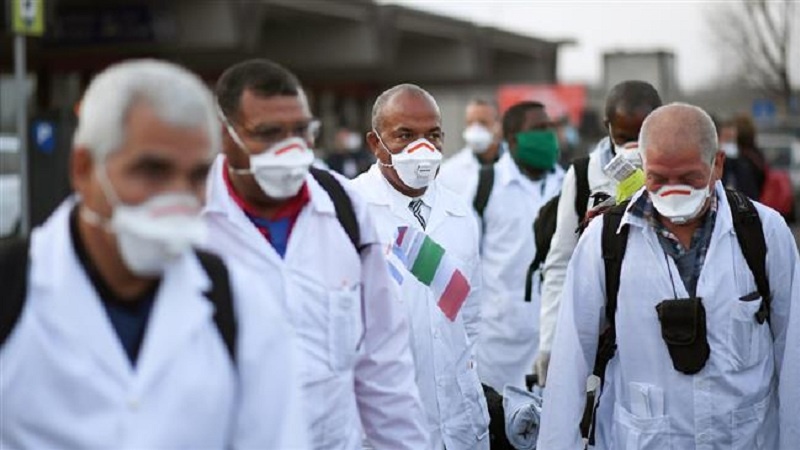Europe’s key economies at standstill, as death toll rises worldwide
The death toll from the coronavirus pandemic continues to increase across Europe and elsewhere in the world, bringing the key economies of the European Union – the new epicenter of the fast-spreading disease — to a standstill.
According to reports, globally, more than 14,700 people have died since the virus emerged in China late last year, according to the latest estimates. Some 340,000 people have been diagnosed with COVID-19 worldwide.
In Italy, the worst-hit country outside China, officials reported 651 new deaths on Sunday, bringing the total figure to 5,476.
It was an increase of 13.5 percent but down from Saturday’s figure when 793 people died, health officials said Monday.
The total number of infections in Italy rose to 59,138 from a previous 53,578, up by 10.4 percent, according to the Civil Protection Agency.
The hardest-hit northern region of Lombardy remained in a critical situation, with 3,456 deaths and 27,206 cases recorded on Sunday.
The government announced a travel ban and ordered the closure of all non-essential businesses, including car, clothing and furniture makers.
The head of the Italian government’s coronavirus relief efforts, Domenico Arcuri, said the country was “at war” with the virus.
“All wars are won in two ways, with one’s own army and with the help of ones' own allies,” he said.
Germany at a virtual standstill, Merkel in quarantine
The virus spread has also brought Germany — the European Union’s largest economy — to a virtual standstill as Chancellor Angela Merkel ordered a ban on gatherings of more than two people for the next two weeks.
Exceptions to the rules are being made for work-related gatherings.
“The great aim is to gain time in the fight against the virus,” Merkel said Sunday.
Later in the day, the chancellor decided to immediately quarantine herself in her home after a doctor, who had earlier administered a pneumococcal vaccine to her, tested positive for the virus, according to government spokesman Steffen Seibert.
Merkel will be regularly tested over the coming days and will continue to conduct her duties as chancellor from home.
Germany is one of the severely-affected countries, with more than 23,000 infections, according to a data collected by Johns Hopkins University.
At least 92 people have died from the virus in the country, which has already closed its borders temporarily with France, Switzerland, Austria, Denmark and Luxembourg.
Spain is ‘at war’ with COVID-19
Meanwhile, Spain, the second-worst affected country in Europe after Italy, reported more than 1,700 deaths on Sunday.
Prime Minister Pedro Sanchez extended the state of emergency until April 11, saying his country is “at war.”
He called on Europe to launch an enormous, coordinated public investment program to contain the pandemic.
SS



